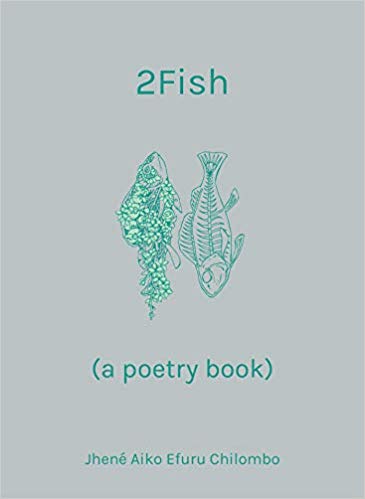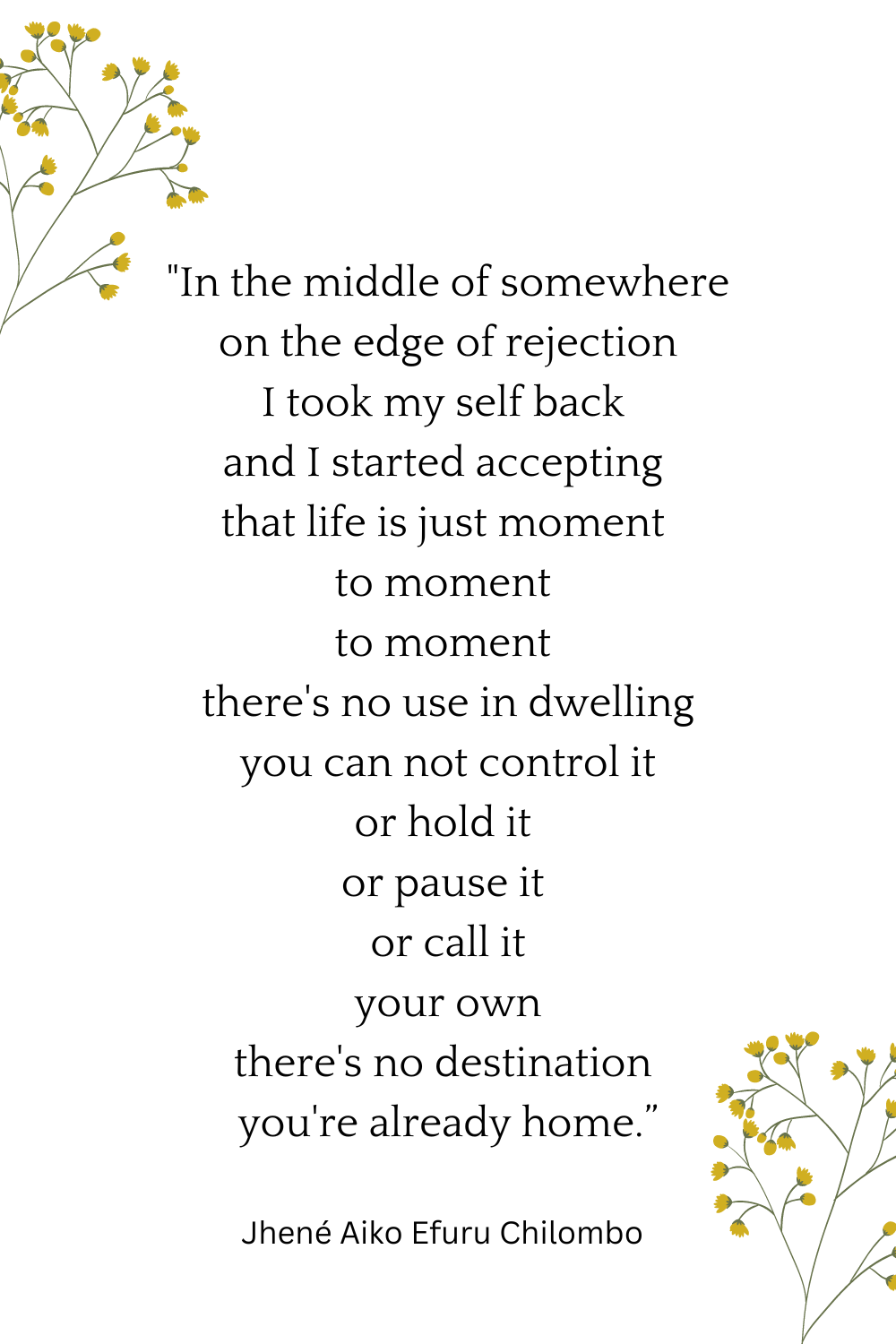- Home
- Think Pieces
- Psychology and Language
- Jhene Aiko 2fish Excerpt
Jhené Aiko 2Fish Quote - My Reflection on an Excerpt from the Book
Below is a quote from Jhené Aiko's Poetry Book, 2Fish, that is both moving and beautiful. Here's a moment of reflection on the words in the excerpt and the meaning they convey.
This article was originally published on March 2, 2020.
It's powerful the way that words can touch you. After that, they stick with you. Today we're going to be giving some attention to a beautiful poem by Jhené Aiko from her poetry book 2Fish. I've not actually read the whole book, I only came across this poem through her posting it on social media.
I was instantly drawn to the words because they feel raw and very real. I think we tend to have a sense of appreciation for poetry that gracefully expresses emotions we can relate to. It's almost like a lightbulb moment when someone else seems to have found the right words for your feelings, right?
As stated on Amazon, 2Fish is a collection of intimate poems and few short stories written by Jhené from adolescence to adulthood, in no particular order. The book is comprised of material taken directly from a collection of notebooks Jhené has kept since age 12.
Here is the particular excerpt I came across:
38Fish
"In the middle of somewhere
on the edge of rejection
I took my self back
and I started accepting
that life is just moment
to moment
to moment
there's no use in dwelling
you can not control it
or hold it
or pause it
or call it
your own
there's no destination
you're already home".
"In the middle of somewhere, on the edge of rejection..."
I love the way Jhené begins the poem. I thought it was particularly powerful the way she put it as in the middle of somewhere, not simply in the middle of nowhere.
The truth is that the difficult moments we experience in life do not occur in isolation. We still have to get on with life. We have other things going on at the same time. And yet we have to find the strength and mental energy to fight the battle.
Moreover, we hurt while we're healing. This means that we might have made some progress in getting over the situation, but we still feel confused and vulnerable.
About rejection - rejection feels like you're falling off a cliff and clinging on only by your finger nails. There's no feeling quite like it. I think again, the poem gets right to the heart of matters.
"I took myself back"
For me, "I took myself back" is probably the most significant phrase in the poem.
And how well placed it is after talking about rejection!
When you feel rejection, it's because you have allowed another person to define you. You have given another person control over you.
The only way to get over rejection is to take yourself back and to start developing a healthy sense of self.
Relief comes when you discover that no one owes you anything, and that you owe yourself everything.
"I started accepting that life is just moment to moment to moment"
For me, this phrase represents coming to terms with reality. We really have to cherish every moment we have because we don't know when our precious moments will come or go.
Sometimes, one must let go of the stubborn inclination to think that they can control their environment.
We can't. But accepting this does not mean we are powerless. Remember, it is linked to taking yourself back.
There is power in accepting the things you cannot change and working to do your very best with what you can change.
"There's no use in dwelling"
Let it go. It's hard, but it's the solution. You need to let go and breathe because it's going to be okay when you do. I think the hardest part is believing this.
"You can not control it ,or hold it, or pause it, or call it your own"
I love the flow of these lines.
In four different ways, we are told to stop trying to control some external entity in our lives.
We often find ourselves running after things (and people, especially) that are actually elusive. We also find ourselves holding onto moments that were transient, but that we wish would last a lifetime.
We must learn to let things flow freely like the air round us. We must let the cycle of our lives proceed naturally like the other natural cycles around us. The water cycle, the oxygen cycle, the nitrogen cycle, etc.
I really like the line about not being able to call something or someone your own, despite how much you may want it.
And really, if we stopped being so possessive about things and ultimately people that do not belong to us, maybe we wouldn't get hurt as much.
These lines stress the importance of setting boundaries. It's not optional. If you don't, you'll finally find yourself in a state of delusion.
"There's no destination, you're already home".
Emotional intelligence helps you to see that you can be happy exactly where you are. It helps you to put a finger on what makes you feel a certain way, and how you are affected by your emotions.
At the end of a pyschological struggle, there's no better discovery than realizing that you already have everything you could ever need to be happy.
I think that you can only really appreciate this whole poem if you appreciate that home is within yourself. For me, this poem conveys the idea of making peace with yourself.
It's about the internal battle and the struggle to think right. It's not even really that much about another person or object of desire.
When you have learned how to love yourself the way you should, then you have found home.
Home is your foundation. It's the base and the starting point you need for any other journey you may find yourself on in life.
You might get brusied before you get to the point where you learn to take care of yourself. But we get there eventually.
We somehow always manage to pull through to the other side.
Jhené's poem reminds me of how beautiful we can be through enduring awkwardness and pain.
When we rise through the ashes of learning those inevitable life lessons.
We rise through the ashes but still smell of smoke.
But just because we've been hurt doesn't mean we're useless or beyond hope.
Sometimes we laugh with tears in our eyes.
It's funny how sometimes people will think they broke you or something.
It's seems they don't know that broken pencils still colour.
Thanks for reading! If you liked this content, share with a friend:
Recent Articles
-
11 Best Gifts for Psychology Majors That Will Delight and Amuse
Dec 07, 25 01:46 PM
Looking for the perfect psychology-themed present for a college student or therapist? Here is a roundup of the best gifts for psychology majors. -
15 Best Gifts for High Maintenance Women and Self-Care Queens
Nov 24, 25 06:49 PM
What do you buy a lady who is already accustomed to a lavish lifestyle? Here are ideal gifts for high maintenance women who never settle for less than the best. -
5 Signs You’re in a Creative Incubation Phase (Not a Rut)
Nov 11, 25 07:51 PM
Feeling uninspired? What if this pause is actually part of the process...Here are signs that you're in a creative incubation phase and good things are coming.





























